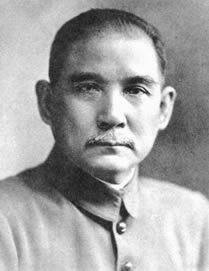Quotable
quotes
Revolution: A means to an end
"The revolution... is
a dictatorship of the exploited against the exploiters."
Fidel Castro (1926-), president of Cuba.
"Revolution
is trivial shift in the emphasis of suffering."
Tom Stoppard (1937-),
English drmatist who writes plays for radio and television.
"The first duty of a revolutionary
is to get away with itt."
Abbie Hoffman
(1936-1989), American-born
Jewish activist in the U.S. civil rights movement.
"The most heroic
word in all languages is revolution."
Eugene Debs (1855-1926), the first president of the American Railway
Union and one of the founding members of the Social Democratic Party in the
United States.
"This
country, with its institutions, belongs to the people who inhabit it. Whenever
they shall grow weary of the existing government, they can exercise their
constitutional right of amending it, or exercise their revolutionary right
to overthrow it."
Abraham Lincoln (1809-1865),
the 16th president of the United States.
![]()
.jpg)
